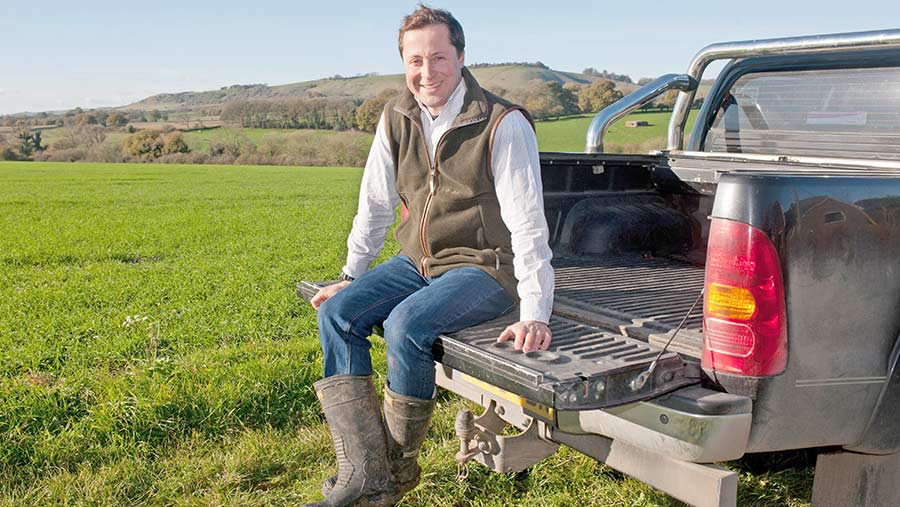Farmer Focus: Six predictions for the year ahead
 © Hugh Nutt
© Hugh Nutt The farm looks a bit beaten up after the recent run of weekend storms; I wouldn’t enjoy showing any of you around right now.
Farm tracks are in a potholed state, concrete yards are breaking up, trees are toppled and fields look washed out.
There is a lot of work stacking up. Autumn cropping remains variable but I’m thankful that we have any crops to take forward at all.
I feel especially sorry for those further north who have been totally flooded out; hopefully the rest of the year will be kinder to everyone.
We hope to soon plant around 130ha of planet spring barley, weather permitting.
See also: Why a grower is taking radical step of leaving wheat area fallow
Predictions
According to Accenture, “there will be more change in the food industry in the next ten years than in the last fifty.”
This will inevitably drive change right through agricultural systems.
With swampy conditions preventing field-work it is a good time to think about our own farms and how they may evolve; here are my six predictions for 2030:
- We will all be more concerned about our farms’ carbon footprints, and support payments will be geared around such calculations. Bioenergy crops like miscanthus will be introduced back in rotations, with less productive fields committed to carbon capture or wildlife recovery.
- We will be growing gene-edited crops with a primary focus on reducing pesticide usage.
- Assuming glyphosate relicensing has been put to bed, and this is a big “if”, direct drilling will become more commonplace as farmers try to reduce establishment costs and increase soil organic matter.
- Cover crops, herbal leys and legumes will be used to reduce fertiliser inputs (which may well be subject to a pollution tax).
- Larger scale arable production will have become more risky. With support systems geared towards smaller family farms, we will have differentiated to produce more specialised products specifically for local markets.
- Automation and robotics will replace more farm labour as immigration restrictions will have caused skilled labour shortages.
These changes will not take away a reliance on some imports for our food.
With the details of upcoming trade deals integral to our future success, I urge everyone to consider attending the NFU food standards rally in London on 25 March, to discuss international trade issues with those willing to listen to our valid concerns.

